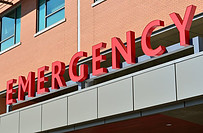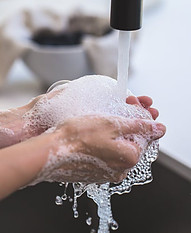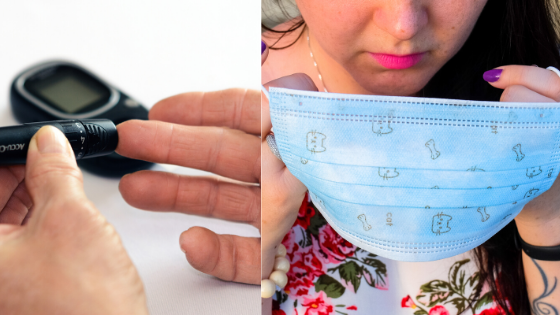 It is only natural for us to discuss “Corona Virus and Diabetes” since all we hear about lately is how quickly it is spreading across the globe.
It is only natural for us to discuss “Corona Virus and Diabetes” since all we hear about lately is how quickly it is spreading across the globe.
We know it originated in China and has now spread to many different countries including Canada and the US.
The news about COVID-19 changes daily so it is important to stay informed with factual, up-to-date information from the Centers for Disease Control and Prevention (CDC) and the World Health Organization (WHO).
Table of Contents
What Do You Need To Know
Since our grandson is a Type 1 Diabetic we needed to know how COVID-19 affects our grandson. I mean how do we ensure he is safe and how bad is it if he were to contract it.
Here in New Brunswick, Canada we have been asked by our government to stay home and avoid going to public places.
With a Type 1 Diabetic in the family, this raised concerns about the availability of medical supplies or medical treatment in the case of Severe Hypoglycemia or Hyperglycemia.
While our daughter does a superb job of managing his Diabetes, there is still the risk that things can get out of control, the risk is always there.
People with diabetes have a higher chance of experiencing severe symptoms and complications when infected with a virus. Diabetics actually face a higher risk of worse outcomes, not a higher chance of contracting the virus.
In China, still, where most of the cases have occurred, people with Diabetes had much higher rates of serious complications and death than people without Diabetes.
So let’s examine what we can do to better protect our Diabetic loved ones.

Take Everyday Precautions
Avoid contact with anyone who is displaying signs of illness of any kind and follow these simple suggestions:
- Wash your hands frequently with soap and water for a minimum of 20 seconds especially after blowing your nose, coughing, sneezing, using the restroom, or being in a public place
- Avoid touching your face, eyes, nose, etc.
- routinely clean commonly touched surfaces in your home (countertops, tables, door handles, light switches, etc.)
- Avoid going to any crowded areas
- Limit all non-essential travel including vacations and cruises
Make a Plan
For a person with Diabetes making a plan before you are sick is imperative so let’s gather what we need:
- phone numbers of your doctor and healthcare team, your pharmacy, and your insurance provider
- list of all medications and doses (including vitamins and supplements)
- simple carbs like glucose tabs. soda, candy, honey, jam, jello, popsicle – these will help keep your blood glucose up in the event you become too sick to eat
- talk to your pharmacy about having extra refills on hand or the possibility of having refills delivered
- always have enough insulin on hand for the week ahead in case you are too ill to refill a prescription
- extra supplies of rubbing alcohol and soap on hand
- Glucagon and Keytone strips, to be prepared for “lows” or “highs”
- enough household food and supplies on hand to last a period of time without having to go out
Talk to your healthcare team about:
- when to call your doctor (keytones, changes in food intake, medication adjustments)
- how often to check your blood glucose
- when to check for keytones
- medications you can use for colds, flu, fever, virus, and infections
- any changes to your Diabetes meds when you are sick
Watch For Warning Signs
If you develop any of these Emergency COVID-19 symptoms get medical attention immediately:
- difficulty breathing or shortness of breath
- persistent chest pain or pressure
- new confusion or inability to rouse
- bluish lips or face
- watch for potential COVID-19 symptoms such as fever, dry cough, and shortness of breath
Be sure to call your doctor if you feel you are developing symptoms.
Have the following information handy when you call:
- have your glucose reading available
- have your keytone reading available
- keep track of your fluid consumption and report
- be clear on your symptoms ( are you nauseated, or just a stuffy nose)
- ask your questions on how to manage your diabetes
Know What To Do If You Are Sick
Here are a few common tips that may vary in individual cases. Naturally, always follow your doctor’s recommendations.
- drink plenty of fluids, if you are unable to keep water down try taking sips every 15 minutes or so to prevent dehydration
- if you are “low” try 15 g simple carbs like jello, honey, popsicles, etc., recheck your blood glucose in 15 minutes to make sure it is rising
- check blood glucose levels more frequently throughout the day and night (every 2 – 3 hours)
- if your blood glucose is “high” twice in a row test for keytones and call your doctors office immediately if you have medium or large keytones (and trace or small if instructed to do so) to avoid Diabetic ketoacidosis (DKA) Check out my article called “Diabetic Ketoacidosis“.
- wash your hands and injection/infusion and finger stick sites with soap and water or rubbing alcohol
Conclusion
While we are still in the midst of battling this COVID-19 virus and are uncertain as to the measures our governments and municipalities will take in the future in their efforts to contain this virus we must stay home away from public places as much as possible.
Yes, it is difficult to have our normal routines interrupted but in my mind, that is a small price to pay to keep ourselves and our loved ones safe.
Frequent washing with soap and water and maintaining diligent Diabetes management will go a long way to staying as healthy as possible.
More frequent monitoring of blood glucose levels, drinking plenty of fluids, and staying in contact with your doctor, and following their advice is crucial in the event you do become infected with not only COVID-19 but any cold or flu.
Stay home and stay safe.
Thanks for stopping by, leave your comments or questions below.


Hi Deborah,
Great article and it couldn’t be more timely.
Here in Spain we are also in lockdown. It’s so important that people with diabetes know that they are at greater risk than others from the coronavirus.
Your advice to stay home is spot on. As a diabetic I wouldn’t be taking the risk at this time.
Hope your grandchild keeps safe too.
Thanks for the comment Judy. Our family here is staying home.
Our grandson is doing well as our daughter has maintained open communication with the doctors and pharmacy to ensure he has what he needs with no delays. While we miss seeing him and his sisters we respect the need to stay home and not take any chances.
With today’s technology we can Face time and safely see family members.
I sincerely hope other Diabetics take this threat seriously.
By staying home the life they save will likely be their own.
I pray you and your family remain safe.
Well put together source of information. Great suggestions and explanations for those that may be a helper in an emergency. You may want to consider putting that the Medical information, or Know What To Do If You Are Sick and Warning signs into a PDF that a person could print and use. Great work.
Thanks for the warm comment Deb, I really appreciate it.
Thanks for the idea about creating a PDF I hadn’t thought of that but it sounds like something I should look into.
Thanks again.
Deborah